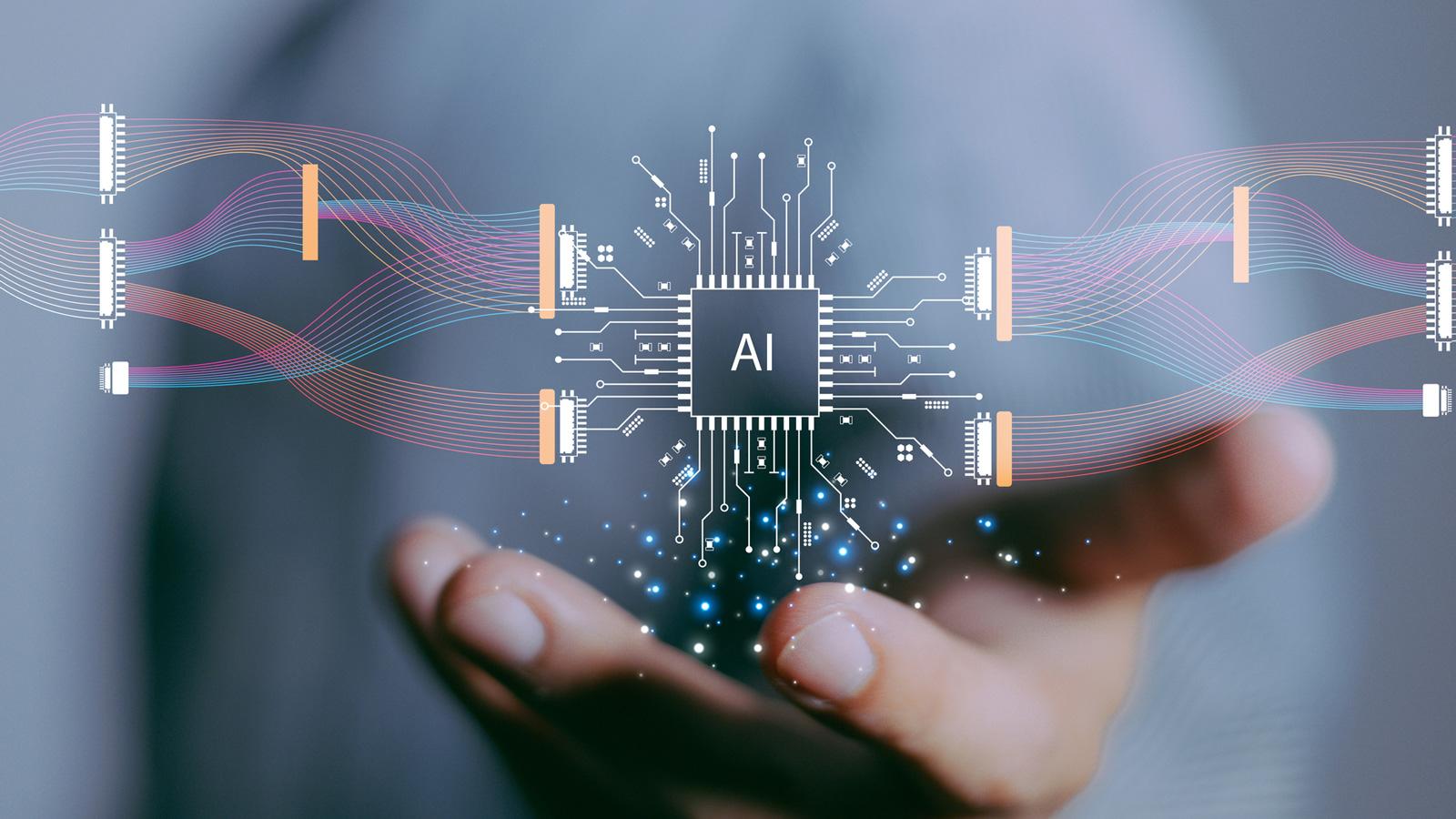Supercharge your supply chain: Harnessing AI to gain competitive advantage

Artificial intelligence (AI) stands at the forefront of technological innovation, reshaping industries on a global scale, with transformation of the specialty healthcare logistics landscape being no exception.
According to industry reports, 50% of global healthcare companies plan to implement AI strategies by 2025.1 Across temp-controlled distribution, end-to-end tracking, contingency forecasting, patient-centric solutions, and all service factors in between, AI is poised to enhance visibility, efficiency, and compliance, creating a new era for the biopharma supply chain. The integration of AI is timely, given the unprecedented acceleration in the development of treatments for critical and rare diseases, such as advanced therapy medicinal products (ATMPs), which are achieving remarkable breakthroughs that suggest the word “cure” is no longer a dream, but very much within our grasp.
The value and hyper-sensitivity of these shipments cannot be overstated, as they require specific temperatures, delivery windows, and handling instructions to ensure the life-saving products reach patients securely and on time. To accommodate the strict demands, AI will be instrumental in strengthening current processes and maintaining the delicate balance necessary to safeguard ATMPs and other vital medicines, samples, treatments, and drug products throughout their entire shipment journey. In conjunction, operations, quality, and risk assessment strategists are targeting other areas where groundbreaking technologies can contribute to the design of a smarter, more resilient supply chain.
The big picture: Real-time visibility for data-driven decision-making
As effective decision-making hinges on the visibility of data, one of the most prolific areas we see AI making an impact in the pharma supply chain is through enhanced transparency. However, it is essential that supply chain partners not only recognise these advancements, but also embrace the challenge to exceed expectations by unlocking and integrating data from diverse sources to review and digest pertinent information in a holistic format, revealing the ‘big picture’.
In the past, many clients were focused on visibility on the package level, with a primary concern being the secure delivery of individual boxes. Today, our partners are shifting their focus towards achieving product or vial-level visibility, which is especially critical with distributing vital medicines, treatments, samples, and products such as advanced therapies. While real-time transparency is already an integral part of many service offerings, the power of AI has the potential to elevate it exponentially. AI continuously analyses smart data from shipments, as well as external factors to provide an ongoing, comprehensive assessment of a product's logistical journey. By streamlining the aggregation of shipment details to present actionable-insights and clarity for live intervention if needed, game-changing advancements from AI change the way we digest and leverage data.
Leveraging AI for shipment management, including location GPS data, will provide further predictive capacity with live insights and in-depth analysis of various external factors including labour shortages, conflict zones, adverse weather conditions, and congested or hazardous road conditions – in addition to other ongoing global disruptions. This transformative capability offers a substantial reduction in risks by proactively forecasting and mitigating situational disruptions and delays. AI-driven shipment management also helps streamline regulatory compliance checks, ensuring product integrity for all shipments anywhere and at any time. Through this analysis, notifications can be streamlined, prompting the nearest facility to prepare a container for repacking or to replenish it 12 hours before the re-icing deadline. AI can also optimise delivery management by prioritising packages nearing the end of their qualifications over those just starting their lifecycle. This enhanced monitoring not only facilitates efficient reverse logistics - tracking assets and their subsequent locations for reuse - but also promises significant cost savings and increased sustainability.
For instance, consider Marken's Monarch, an innovative, efficient, and sustainable packaging solution for transporting and safeguarding temperature-critical clinical pharmaceuticals across the globe. With temperature-range capabilities from ambient to deep frozen (-80°C), it goes beyond the dimensions of performance with internal and external sensors that monitor real-time container performance, ensuring we grasp a holistic view of the shipment's environment and can make proactive data-driven decisions. A recent case-in-point involved an unexpected FDA hold on a Marken Monarch shipment. While such unforeseen disruptions can be catastrophic, we were able to actively monitor the shipment performance throughout the 3-day delay to ensure the packaging upheld temp conditions. Receiving this live data and vigilant oversight was crucial – we were able to make the strategic decision to then distribute the shipment in a temperature-controlled vehicle (TCV) to its final destination, which confirmed adherence to the strict time and temp requirements.
Synergistic communication through integration adoption
There is little doubt AI will help us build a smarter supply chain, but there are still many challenges to fully integrating AI solutions. One of most common challenges is the adoption phase, as it takes time and change management. On average, it takes two to three years for a biotech company to achieve maximum benefit from AI and automation processes. To begin the process, an assessment of digital maturity needs to be done - this can lead to potential process and/or structural adaptation. By starting with an assessment of the current supply chain threshold, pharmaceutical and biotech organisations can better understand the potential positive impact of AI on their daily operations and compare this transformation over time.2
Another issue discussed among industry stakeholders is the lack of standardised information. Various companies employ diverse data formats and systems, complicating the uniform application of AI-driven solutions. It's essential to acknowledge no single software or company can address the complexity and diversity of needs. Therefore, it is important to emphasise collaboration, partnerships, and the cohesive utilisation of integrated tools to facilitate this transformation. To seamlessly manage our AI integration into our shipment management, we foster transparency and alignment with our clients and partners.
To provide a simple scenario: imagine data telling us exactly when a client's shipment is ready for pick-up. If there's a delay on the client's side, AI quickly alerts our courier, allowing the driver's schedule to be adjusted. Essentially, AI helps us spot and manage unexpected changes, making sure communication hurdles don't affect our overall efficiency. By leveraging smart data to process diverse inputs and pinpoint anomalous variables within our logistical framework, we can optimise pick-up and delivery schedules – supporting product stability at every step.
AI’s role in shaping the future of healthcare logistics
The integration of AI in the pharma supply chain is still in its early stages, but the potential benefits are instrumental and ever evolving. Effective deployment begins with proactive communication among stakeholders to align goals and set clear expectations. AI adoption is not an overnight transformation, but a strategic long-term goal. We believe new technologies are only as useful as the underlying business processes they support and enable. Too often, organisations view technology as a silver bullet, but technology can only realise its truest value at the confluence of the right people, tools, and processes.
An integral aspect of this evolution is the industry's shift towards smarter temperature-controlled packaging and real-time monitoring devices. We're currently witnessing a surge in advanced packaging solutions. However, a core challenge persists: discerning the optimal means of assimilating data using AI to realise its potential in informed decision-making. Once this foundation is set, we'll be equipped to foresee outcomes based on feedback, channelling our resources to fully leverage this cutting-edge technology. The result? A more intelligent supply chain, enriched with myriad automated procedures that avoid disruptors to seamlessly accelerate the shipment journey.
Big data and machine learning can also play an important role in reducing supply chain costs. According to McKinsey, early adopters reduced inventory expense by 35%, and logistics costs by 15%.3 With the global market for medicines projected to exceed $1.9 trillion by 2027, the role of AI becomes even more pivotal.4 Through synergistic collaboration, AI-powered solutions promise to revolutionise the supply chain, making it more streamlined, secure, and cost-efficient. To fully realise the potential of this emerging technology, we must integrate our vast experience and expertise in logistics into AI, ensuring a holistic data perspective for reliable predictive forecasting and guidance.
Once we successfully integrate AI into our daily operations, we stand on the brink of pioneering an unprecedented era of logistics with applications we’ve yet to even conceive.
Sources
- Pharmaceutical Technology. (2023, September). The Future is the Present: Artificial Intelligence in Pharmaceutical Manufacturing. Retrieved from PharmTech.com.
- Applied Clinical Trials Online. (2023, March). Shortening Clinical Drug Supply Timelines Using AI. Retrieved from appliedclinicaltrialsonline.com.
- Supply Chain Brain. (2023, July). How AI Can Help Address Emerging Supply Chain Risks. Retrieved from supplychainbrain.com.
- IQVIA. (2023, January). Global Market for Medicines to Rise to $1.9 Trillion by 2027. Retrieved from IQVIA.com.













